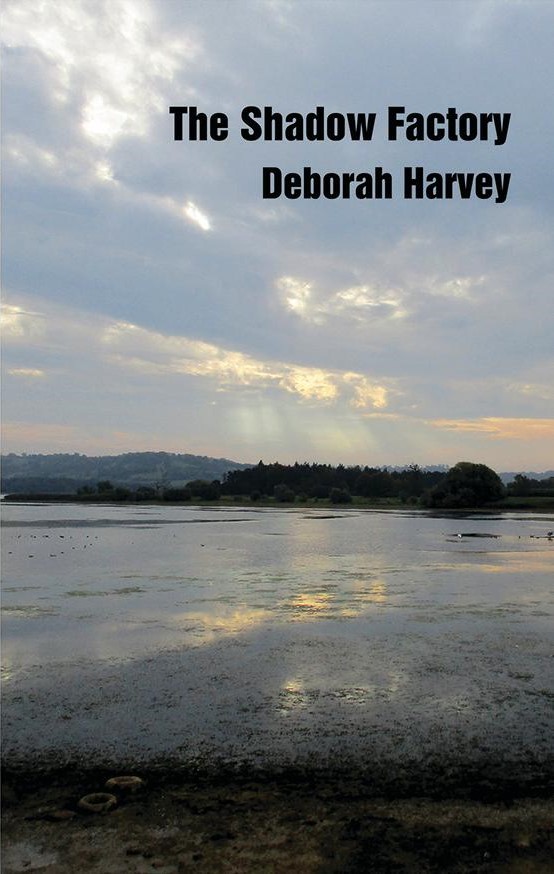The title of this collection is taken from a poem with that name in the book.
Was it night fall or the sun eloping with a cloud?
No one knew for sure but whatever the cause
the shadow factory vanished.
The poem in its entirety is about the demolition and dereliction ‘rubble and broken glass’ and the loss to the people of the workforce. It speculates on where the shadow factory is now and within that metaphor, has a real felt and elegiac tone, adding to a collection which always seems to acknowledge the edge lands in our lives and the power of thought and wonder.
Personal memories and poems of memory permeate. They surface in contemporary moments, as in Glebe Lands, a poem about moving house:
‘Once we’ve decamped here, unpacked our lives … we’ll start to overlay this street with I’m-late-for-work … I’ll show you the shortcut through the lane you’ll call a snicket……
but always abuts against the past:
But for now I’m holding my grandmother’s hand,
She’s wearing a hat hedgehogged with hatpins
a smile to wide to jump
Also on this theme are The Future Tense about learning French in school and The Invisible Man about a relative who has lost touch with his sister. These are people who are looked at slant, to quote Emily Dickinson. We find detailed portraits.
There is a beautiful sequence, Black Seeds A wreath of sonnets, which recalls the death of a father, where again the poems move fluidly between the present and the past.
You tell fibs about your fluid intake
scrabble for your medals in the tin by the bed
… this one’s the Africa Star
the ribbon’s yellow for sand in the desert
the red is for the blood
When I was six I’d practise being dead
spread-eagled like a cowboy on the front room carpet
toe over toe for my crucifixion
my head drooped decorously to one side
My favourite is My father is singing Rev Eli Jenkins’ prayer over the phone. With the repeated first line in every stanza, the poem becomes a lament acknowledging the imminent loss of her father.
And I wonder if this is his prayer too
and whether he wonders for how much longer
it will be answered
My father is 95, each moment numbered
My father is singing me a rag to wrap myself in
There are also many poems which skilfully catch a moment in time through a clear and honest gaze, for example, Touchstone:
The place you need to reach
is not a leisurely stroll from the ice cream van …
And let your flesh feel the gravel of wind-thrown rain
the luxurious burn of summer gorse
and don’t presume to be certain of the terrain
Eleven o’clock in Leningrad also captures as if in a sudden movement two people travelling in the city in a starkly lit moment
Caught
in this blue night we’re outside of time
in a city of shifting names
built on bones and water
There is a tenderness in these poems, a personal voice seen particularly in Sensible shoes, a portrait of a friend with whom the poet visited Somerset churches.
Years of pacing the wards have left you
as sensible as your flat-heeled lace-up shoes.
And also a questioning and philosophical and bemused tone which asks us to engage with our humanity:
Sometimes perfection is too much
like on early autumn mornings parked by the lake
in the space between daylight and dawn,
when you know without counting there’s seven swans
four calling crows …
Write instead this rain-smudged dusk
bent and rusted railings breaking
from Heron’s Green Bay
Clare Crossman has published four collections of poetry. Her fifth, The Mulberry Tree, is due from Shoestring Press later this year. Recently she wrote for Waterlight, a film about a chalk stream with the film maker, James Murray White. She is the convener of the South Cambridgeshire stanza group.
The Shadow Factory by Deborah Harvey is published by Indigo Dreams Publishing and can be ordered from them or the usual outlets https://www.indigodreams.co.uk/deborah-harvey-tsf/4594746908

